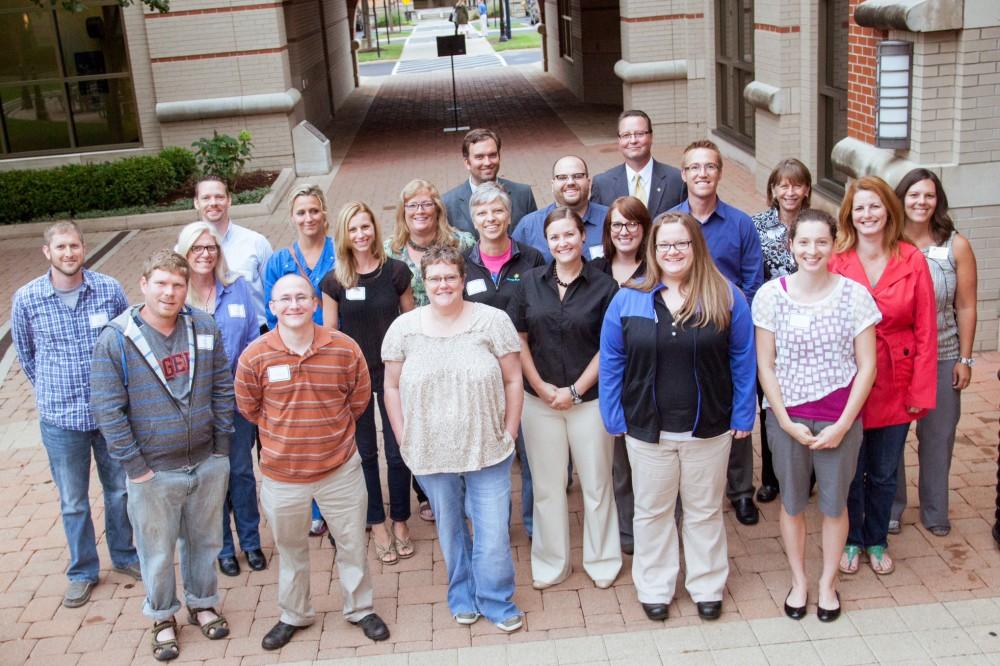Cohort gives academic support for nontraditional students

GVL / Courtesy – University Communications Grand Rapids Cohort
Apr 16, 2015
During the fall 2015 semester, Grand Valley State University will begin its third 19-month accelerated leadership cohort. The first ever cohort began in the fall of 2015 in Grand Rapids and the second began winter 2016 in Holland.
“The Accelerated Leadership Program is designed for adult students over the age of 24 who have several years of work experience,” said Kate VanderKolk, the student services coordinator in the Center for Adult and Continuing Studies.
VanderKolk explained that the program focuses on helping students develop leadership skills in any field.
“The classes are structured so students attend classes one night a week and complete the rest of the coursework online,” she said. “Each class only takes five weeks to complete, so if they start with around 72 credits, they will be able to graduate in 19 months.”
The leadership program is intended to strengthen students’ professional and support networks while also encouraging learning from peers.
“This program is beneficial for Grand Valley because adult students often have different needs than our traditional 18 to 22-year-old students and often need evening classes to fit around work and family schedules,” VanderKolk said. “They also benefit from the cohort structure because they are a support to each other when returning to school and can use the cohort to help build on their professional networks.”
Judy Whipps, a faculty member and adviser in the cohort program, said there is a lot of support between the students in the cohort.
“Witnessing the support that the students give each other in the cohort is amazing,” Whipps said. “Sometimes I think that having a cohort that travels through this program together is the thing that makes this rigorous program possible for these busy adult students.
“They are in a program with other students who are facing the same work, family and life challenges, and they hold each other to high standards and support each other when facing individual challenges.”
The courses include leadership for social change, leadership dynamics, team building, concepts of management, social change and ethics and organizational theory.
The leadership cohort is a great example of liberal education, Whipps said, because the program combines the depth of readings from the humanities and social sciences with the practical skills of workplace or community leadership.
“Each course has an element of community engagement, which has added so much to the program,” she said. “The Grand Rapids cohort has been working with the Challenging Scholars initiative, and the Holland cohort is working on a variety of community sustainability and human rights issues. Adult learners have so many assets to bring to this community work; it makes it a rich learning environment for all of us, faculty included.”
Students who complete the leadership cohort will earn a Bachelor of Science or a Bachelor of Arts in liberal studies with an emphasis in leadership.

























